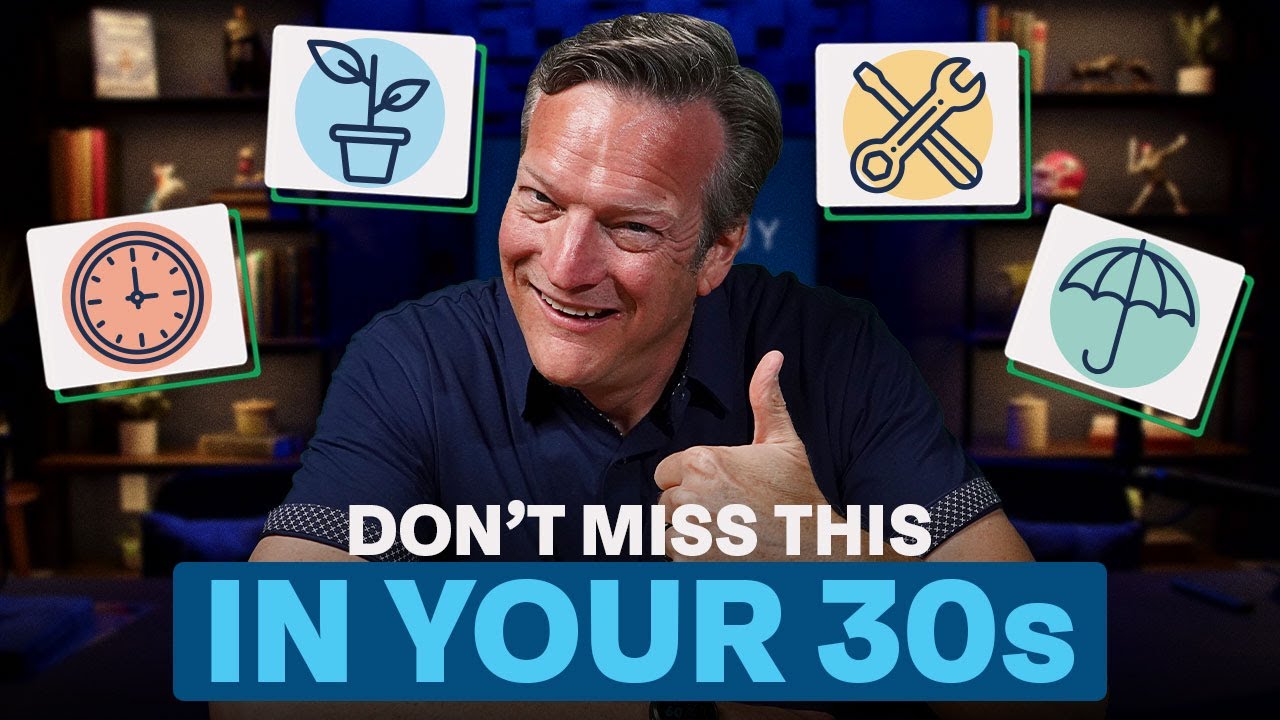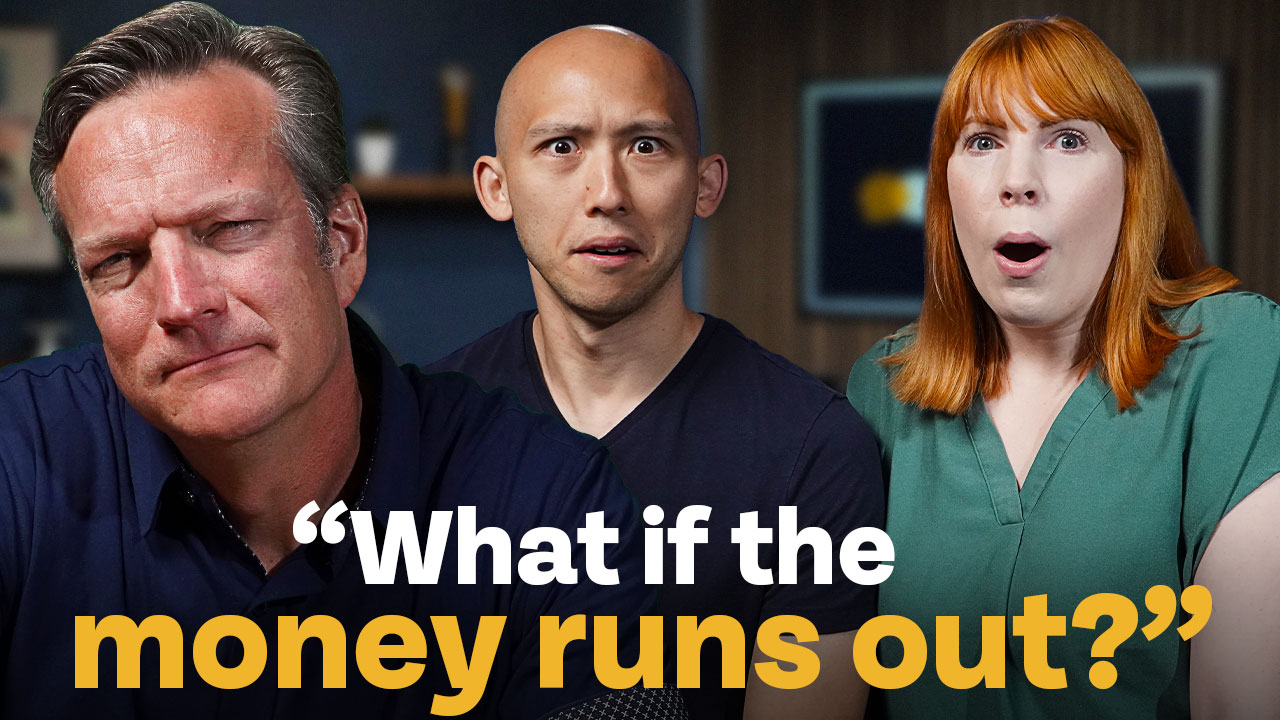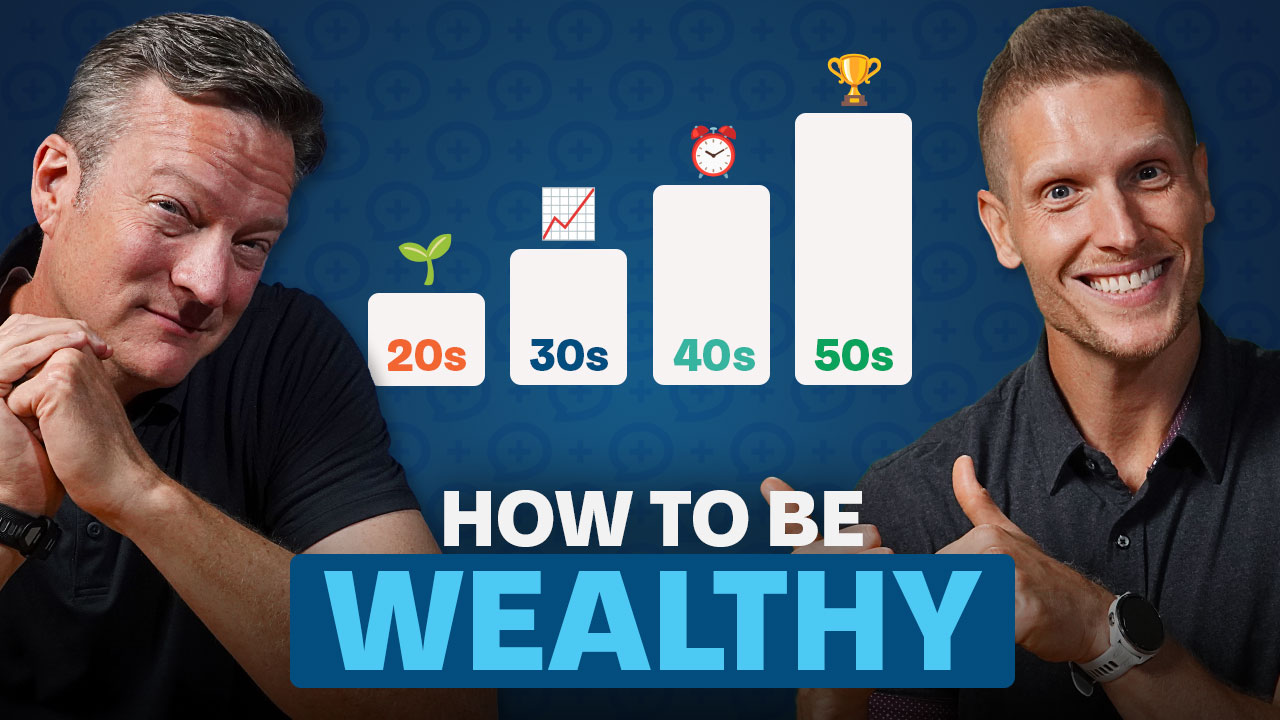Moving on to Joshua's question. With interest rates quickly rising, does the need for a larger down payment become more important when buying a house? A seven percent mortgage rate over 30 years is brutal, he says. What do you guys think? First of all, the common rule of thumb is that when you go to buy a house, you want to put 20% down. That still holds; we're not deviating from that. We'd love for you to be able to put 20% down. But on your very first home purchase, it's hard to come up with 20 percent. Rising interest rates make things hard, but so too does rising home prices because that 20% keeps getting higher and higher and higher. That's why we offer some reprieve where, if it's your first home, you only have to put down three to five percent. Now, that's not saying that you can't put down 7, 10, 15, 20, or if you need to put down 30 percent on your home to end up making it affordable, I don't think that that's crazy because what we want you to think about is how much is my monthly housing cost? Am I keeping it inside of that 25 realm? So, at seven percent mortgage rates, I definitely think that rising interest rates affect the down payment, but you still have to have the opportunity cost discussion.
I was having a conversation with someone before, and he said, 'Hey, I have this buddy, and his parents are working through some estate planning, whatever, because parents gave him a hundred thousand dollars. It's part of their plan; they needed to get rid of it.' And he was like, 'Awesome, that's great. Oh, man, it's amazing, it's life-changing. This is like a young person in their mid-20s.' And what they did is they went and found, I think, a hundred and ninety thousand dollar house in the community in which they live, and they put a hundred thousand dollars down on it, okay? Right, and I'm just like, 'Oh, whoa, I get it. Seven percent interest rate, that's high. But for someone who's at 25 years old is putting down 50, 60% down on a house, the best use of those dollars over the long term, I don't know. That gives me a little bit of heartburn.
Well, I still think part of the
financial order of operations, I don't want you paying off mortgage interest, even at six and seven percent rates, until you get to step nine. Looking... that's a whole other question on what we consider, what how high do mortgage rates have to be to be considered um high interest? But I just know when you go look at high-interest rate historical environments like we had in the early '80s, if you think the interest rate on those mortgages is high, go see what the S&P 500 did during those periods, and you'll see there's still a risk premium, meaning a spread that investments made above and beyond even those super high-interest rates. So, that's why I don't want you to walk away from that. But I think this is one of those questions; it's such a small group of people because the reason we do the five percent, I mean, three to five percent on your first down payment, first house, is because buying your first house is just hard, straight up hard, um, so because housing prices have gone up substantially, the market's running from people. When you think about it, even if houses are just appreciating three percent, like historically normal, because we're talking about leveraged debt, you could save wide open with your average salary of say forty, fifty thousand dollars a year, you could save a ton of money and then come back to find that the appreciation of what happened in the housing market completely just took away any benefit that you had from saving as hard as you could. So, that's why we're just trying to get you on the equity train of buying your first home. So, to say, 'Can I put down 20% versus three to five percent because interest rates are seven percent?' This is somebody who's already a financial mutant and so far ahead. I would challenge you until you say, 'Put the mirror up to you and say, are you at step nine of the
financial order of operations?' If the answer is no, then no, don't put down, you know, especially on the first home. Let's make sure you're maximizing the system, so you're 40 and 50 and 60-year-old self are just sloppily excited, happy that you actually maximized all the compounding growth opportunities out there because I think the vast majority of people are struggling just getting into the house because everything is working against them with rising interest rates, rising appreciation, and values. This is not the common issue that people struggle with. And if you are in this great catbird seat where you have the ability to put down more, then challenge yourself and look at the
financial order of operations and make sure you're not skipping out on investing for your future self. That's great.













